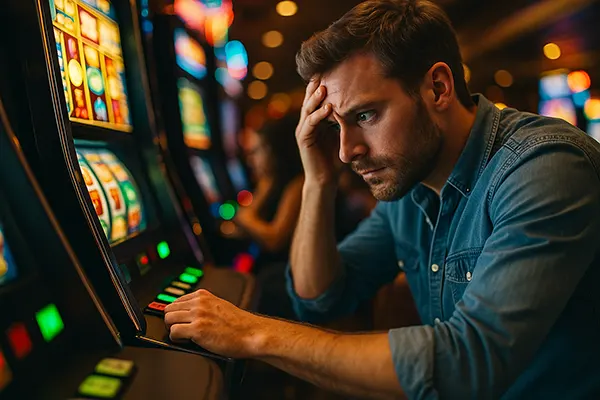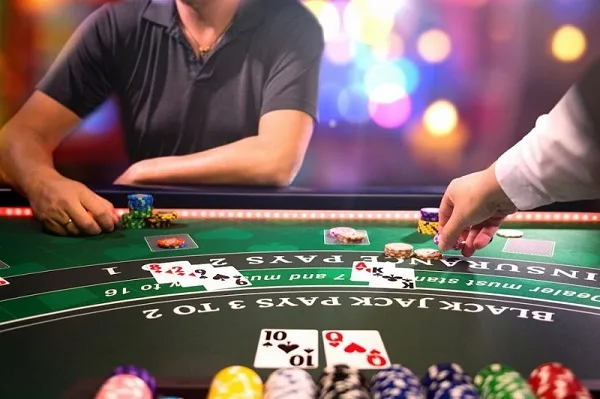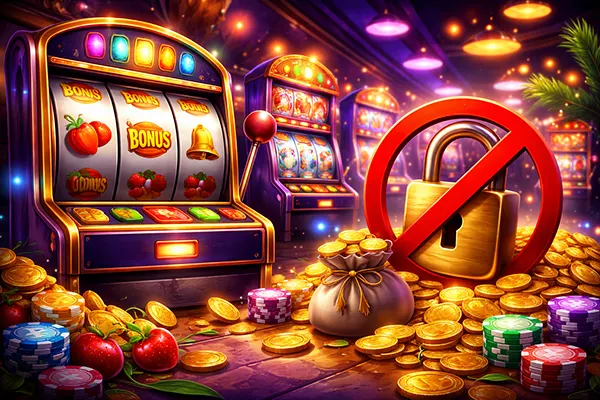
Psychology of Gamblers: How Emotions, Biases and Cognitive Traps Influence Casino Decisions
Behind every spin of the roulette wheel or pull of a slot lever lies more than chance — there’s a powerful psychological process guiding the player’s actions. Gambling behaviour is shaped by a mix of emotional triggers, mental shortcuts, and deep-rooted cognitive biases. Understanding how these mechanisms work helps explain why people keep playing, even when logic suggests otherwise.
Emotional Drivers Behind Gambling Behaviour
Emotions play a defining role in gambling. Excitement, anticipation, and the rush of near-wins stimulate the brain’s reward system, releasing dopamine — the neurotransmitter linked to pleasure and motivation. This biochemical reward reinforces the urge to keep betting, even after losses. For many players, gambling becomes an emotional experience rather than a rational one.
Beyond excitement, many gamblers use betting as an emotional outlet. It can temporarily relieve stress, boredom, or loneliness. This form of escapism can quickly turn into a cycle where the player associates relief with risk-taking. As emotions intensify, rational decision-making fades, and impulsive bets become more common.
Studies conducted in 2025 by behavioural economists highlight that emotional states — both positive and negative — can significantly distort risk perception. When players are in a good mood, they tend to overestimate their odds of winning, while frustration or anger can drive them to chase losses irrationally, trying to “restore balance.”
The Role of Dopamine and Reward Learning
Neuroscientific research shows that the brain responds to gambling outcomes in the same way it does to addictive substances. The unpredictability of wins creates a variable reinforcement schedule, which is particularly powerful in conditioning behaviour. This means players are motivated not by guaranteed rewards, but by the excitement of uncertainty itself.
Repeated exposure to these unpredictable rewards strengthens neural pathways associated with anticipation and desire. Over time, this can lead to behavioural conditioning where the act of playing — not winning — becomes the main source of satisfaction. This phenomenon explains why some gamblers continue playing despite consistent losses.
Modern gambling systems, both online and offline, use sophisticated algorithms to maintain this balance of reward and suspense. Near-miss outcomes — where a win seems just out of reach — trigger the same brain responses as actual wins, reinforcing the desire to continue playing.
Cognitive Biases That Distort Gambling Decisions
Beyond emotions, gambling is deeply influenced by cognitive biases — systematic errors in thinking that affect judgement. One of the most prevalent is the “gambler’s fallacy,” the belief that past results influence future outcomes. For instance, after a series of reds in roulette, players might assume black is “due,” even though each spin is independent.
Another common bias is “illusion of control.” Players may believe that their actions, such as choosing certain numbers or using specific strategies, affect random outcomes. This false sense of influence gives gamblers a feeling of mastery over chance, fuelling continued play despite statistical evidence against them.
Confirmation bias also plays a strong role. Players tend to remember wins more vividly than losses, constructing narratives that justify continued gambling. This selective memory creates an illusion of skill or luck that doesn’t align with reality.
How Heuristics Shape Player Choices
Heuristics are mental shortcuts that simplify decision-making but often lead to errors. In gambling, the “availability heuristic” causes players to overestimate the likelihood of winning because examples of big wins are easier to recall. Advertisements showcasing jackpots and success stories reinforce this distortion of probability.
The “anchoring effect” also affects bet sizing. When players see high jackpot numbers, they may anchor their expectations to those figures, overestimating potential rewards while underestimating risks. This cognitive bias subtly manipulates how players perceive value and probability.
Modern studies reveal that these heuristics are not unique to inexperienced players. Even professional gamblers are susceptible to emotional and cognitive shortcuts, proving that human reasoning is inherently fallible when confronted with uncertainty and excitement.

Preventing Cognitive Traps and Promoting Responsible Play
Recognising psychological influences is the first step toward safer gambling habits. Responsible gambling strategies now focus on raising awareness about these biases. Educational campaigns and casino tools that display time and spending limits help players maintain control and reduce impulsive behaviour.
Technology in 2025 has also introduced advanced monitoring systems using artificial intelligence to identify at-risk behaviours early. By analysing patterns such as session duration and bet escalation, casinos can send timely reminders or interventions encouraging players to take breaks or seek support.
Psychologists recommend cognitive-behavioural techniques to combat distorted thinking patterns. These include identifying triggers, tracking emotions during play, and reframing thoughts about wins and losses. By promoting mindfulness and emotional regulation, players can enjoy gambling as entertainment rather than a coping mechanism.
The Future of Gambling Psychology
As research advances, understanding the psychology of gambling is becoming crucial for public health and regulation. Countries are increasingly integrating psychological insights into gambling laws and responsible gaming frameworks. In 2025, several European nations have expanded programmes focusing on early detection and mental health support for gamblers.
The future of responsible gaming lies in merging technology with behavioural science. Personalised feedback, based on player data and cognitive analysis, is already improving outcomes for those at risk. By making players aware of their emotional and mental patterns, these innovations foster self-awareness and control.
Ultimately, understanding the psychology of gamblers is not just about prevention — it’s about awareness. By recognising how emotions and cognitive traps operate, both players and regulators can build a safer, more conscious gambling environment.





